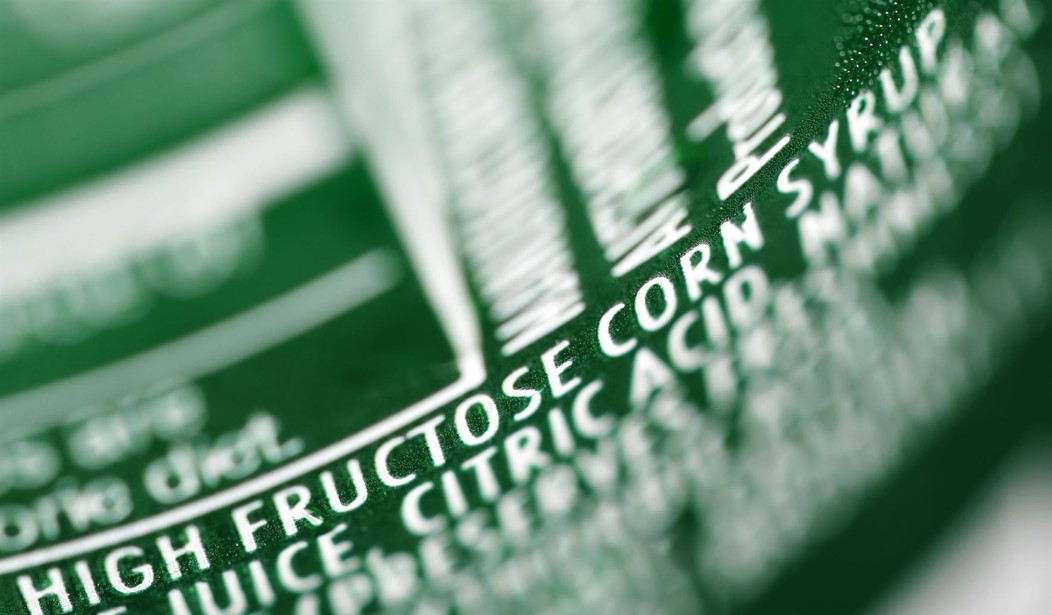As injectable weight loss and diabetes control medications have swept the nation, some have questioned the safety and efficacy of these drugs. Marketed under various brand names like Wegovy, Ozempic, Rybelsus, Maunjaro, and others, these drugs have been on the market for quite some time as a prescription to treat Type II diabetes. They have also received increased off-label approval to treat obesity, which has caused demand to skyrocket. The Hollywood types have touted their results in social media posts, leading to backlash from critics who blame the actors and actresses for the spikes in demand that have led to short-term shortages. As the popularity of these injectables grows, so does the debate.
Now, a warning about weight loss drugs has come from an unexpected source — stock analysts. Based on early results, Morgan Stanley is already issuing investment guidance, forecasting a 1.3% drop in calorie consumption across America by 2035, and urging caution on stocks for fast food chains, confection manufacturers, and other consumable commodities.
Americans are used to warnings about weight loss drugs coming from the FDA, doctors, and advocacy groups. Wall Street rarely weighs in, so this indicates that such a big shift has started, even they’ve taken notice.
CNBC reported this week:
The drugs are more successful in achieving weight loss and appear to have fewer side effects than previous generations of obesity treatments. Their quick adoption is expected to have far-reaching consequences in many economic sectors. One such prediction came Monday from Morgan Stanley analysts who forecasted a 1.3% drop in calorie consumption in the U.S. by 2035. They expect the change will force a response from the food and beverage industry as it works to adapt. “Although the overall impact on US calorie consumption is moderate, the food industry is already contending with soft volume growth stemming from shifting consumer preferences,” wrote analyst Pamela Kaufman, who is one of the report’s authors.
“We believe the food industry will need to address shifting consumer behavior stemming from broader adoption of these drugs, which reduce calorie intake, resulting in lower consumption broadly across food categories, but with more significant effects on unhealthier foods such as confections, baked goods, and salty snacks,” she said. The report cited food companies such as Hostess Brands, Hershey, Campbell and Mondelez as ones that are most at risk. The firm also sees the potential for dwindling crowds at restaurants as consumers cut back on trips to fast-food chains and coffee shops as a result of their new habits.
This trend didn’t even gain traction until this year, and halfway through, analysts have already sounded the alarm on permanent, society-wide shifts in behavior having real effects on stocks.
The various brand names of the weight loss injectables all belong to a class of drugs called glucagon-like peptide-1 (GLP-1) receptor agonists. The generic compound sold under various brand names is called semaglutide. The hormone cycle is quite complex, but in a nutshell: when you consume food, your body secretes several hormones, including GLP-1, which helps stimulate the production of insulin to help digest the glucose you’ve taken in. Semaglutide, taken subcutaneously once weekly, binds with GLP-1, extending its presence in the bloodstream — normally it breaks down in just a few minutes. The stimulation and extension of GLP-1 extends the effect on insulin secretion and lowering glucagon secretion when blood glucose levels are high. It also causes a slowdown in how fast the stomach empties.
The results have been dramatic. Semaglutide “mimics the body’s hormones to slow the passage of food through the digestive system,” CNBC reported, “regulates insulin in the bloodstream and communicates with the brain to reduce food cravings. The result is people taking these drugs feel full longer, and have [a lower desire] to eat. That makes it easier for them to make good food choices, restrict calorie consumption and lose weight.”
Some consumers even report having to force themselves to eat, and the complete loss of appeal of consuming alcohol and junk food.
Morgan Stanley conducted market research to understand how consumers feel about taking these injectable weight loss drugs, surveying 300 patients in June and July. The results of this survey were eye-popping. Again from CNBC:
Those polled ate fewer meals, developed an aversion to higher fat and sugary foods, and dined out less often, they said. The new behavior resulted in 20% to 30% fewer calories consumed each day, according to the report. The size of the market Morgan Stanley’s biopharma analysts expect the number of people taking anti-obesity medication to grow “nearly fivefold over the next 10 years.” That equates to some 7% of the U.S. population, or about 24 million people, they said. This estimate reflects that a large number of people could benefit from the medication. About 45% of the U.S. population has obesity, and 70% are overweight, according to figures from the Centers for Disease Control and Prevention.
CNBC went on to report an earnings call for Walmart shareholders earlier this year, in which they noted marked shifts in grocery sales toward healthier choices, and away from high-sugar, high-fat processed foods.
This means a lower profit margin for grocers. After all, junk food pays the bills. Those on the shareholder call attribute the sudden shift to GLP-1 agonists.
That comes as no surprise, as Morgan Stanley’s research shows patients taking these injectables for weight loss consume upwards of 900 fewer calories per day.
Recent studies have also pointed out significant cardiovascular benefits seen by patients taking these treatments:
A popular weight loss medication may prevent up to 1.5 million heart attacks and strokes over 10 years, and could result in 43 million fewer obese people.https://t.co/xDFHxbusLB
— Dr. Inna (@MyDoctorInna) August 17, 2023
They may even suppress addictive behavior, associated with obesity:
Semaglutide and Addiction Brain Center
Some evidence suggests that GLP-1 receptor agonists might influence brain areas that regulate appetite and food intake. The hypothalamus, for instance, is a key brain region that regulates appetite, and GLP-1 receptors are expressed in… pic.twitter.com/N3am64nQiP
— Jorge Guerrero, MD (@JorgeGuerreroMD) August 14, 2023
Some critics have questioned the long-term effects of hormone treatment, and the sudden rush by Big Pharma to get these treatments to market — and to market them. The ads are all over TV, radio, social media, and streaming services. These concerns are well-taken, given the massive deception we endured over the past three years with the COVID lockdowns and vaccines. Some patients have reported significant relapses and a return to obesity after stopping treatment. Evidence has started to emerge for some patients linking potential thyroid and kidney problems to the use of these treatments.
Related: Appeals Court Says FDA Expanded Access to Abortion Pill Illegally
If the past three years of forced lockdowns, masks, vaccine mandates, and government ordering a stop to all “non-essential” medical procedures taught us anything, it’s this: every individual must be their own medical advocate, and in cases where you can’t advocate for yourself, have a loved one or close ally advocate for you. Doctors are far from infallible, and the pharmaceutical industry has not acquitted itself terribly well recently. Ask all the questions. Bring a loved one to listen in. Demand a second opinion. Make your own decision, free from the social pressures and avalanche of marketing messages constantly bombarding us in our modern society.
That said, this class of therapeutics has shown significant promise in off-label uses. Much like ivermectin and hydrochloroquine, GLP-1 agonists could end up having significant effects on our society, in ways their creators — and the FDA — did not imagine.
Wall Street has already sat up and taken notice. It’s their job to analyze market trends and their effects on the bottom line. This latest warning is quite revealing.










Join the conversation as a VIP Member